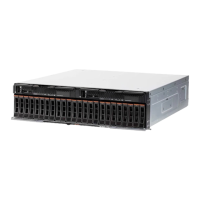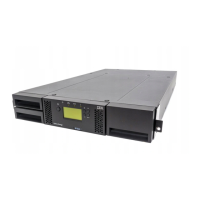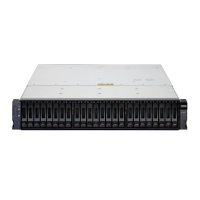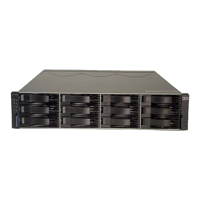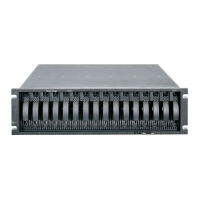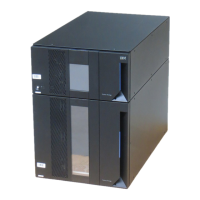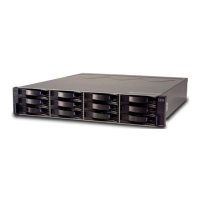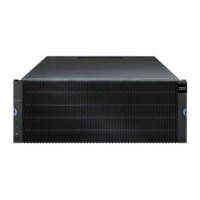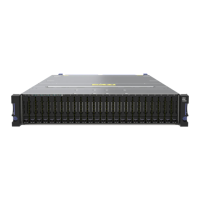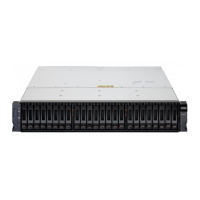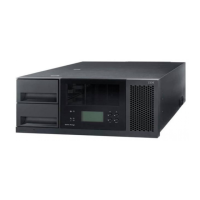92 IBM Midrange System Storage Hardware Guide
These connectors are:
Management Ethernet connectors
This connector is for an RJ-45 10/100/1000 BASE-Tx Ethernet connection. There are two
connections per controller. One port is designed for out-of-band management and the
other port is meant for serviceability. The logic behind adding an extra port was to
introduce additional isolation and to separate management and service traffic from one
another. Because of the extra port, it is preferable to have two IP addresses per controller
in order to manage and service the DS5020 storage subsystem appropriately. However,
you cannot attach this port to a routed network, because you cannot set up a gateway for
it. You will still operate the DS5020 with only one IP port active per controller. The best
practice it to set port 1 in the customer network for out-of-band management and leave the
Port 2 as the default in order to let service personnel to connect using the default IP
addresses.
The default IP addresses for the controllers are shown in the Table 3-7. The default subnet
mask for all four Ethernet ports is 255.255.255.0.
Table 3-7 Default IP addresses for management ports
Serial port
This serial port is used for management and diagnostic purposes. You can use a PC with
a terminal emulation utility, such as Hyper Terminal, to access the command set.
The maximum baud rate is 115,200 bps. The default baud rate setting from the factory is
38,400 bps, N-8-1, with no flow control.
Controller A Controller B
Port 1 192.168.128.101 192.168.128.102
Port 2 192.168.129.101 192.168.129.102
Note: We do not recommend the terminal program PuTTY, because certain versions of
PuTTY send characters to the controller that cause the controller to reboot.
Attention: Managing the DS5000 storage subsystem through the serial interface has
potential risks. Using certain commands, you can initialize the RAID controller, and
therefore lose all your data. You should only use this interface when instructed to do so by
IBM Support.
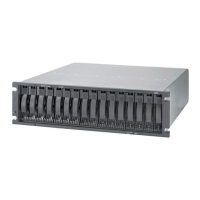
